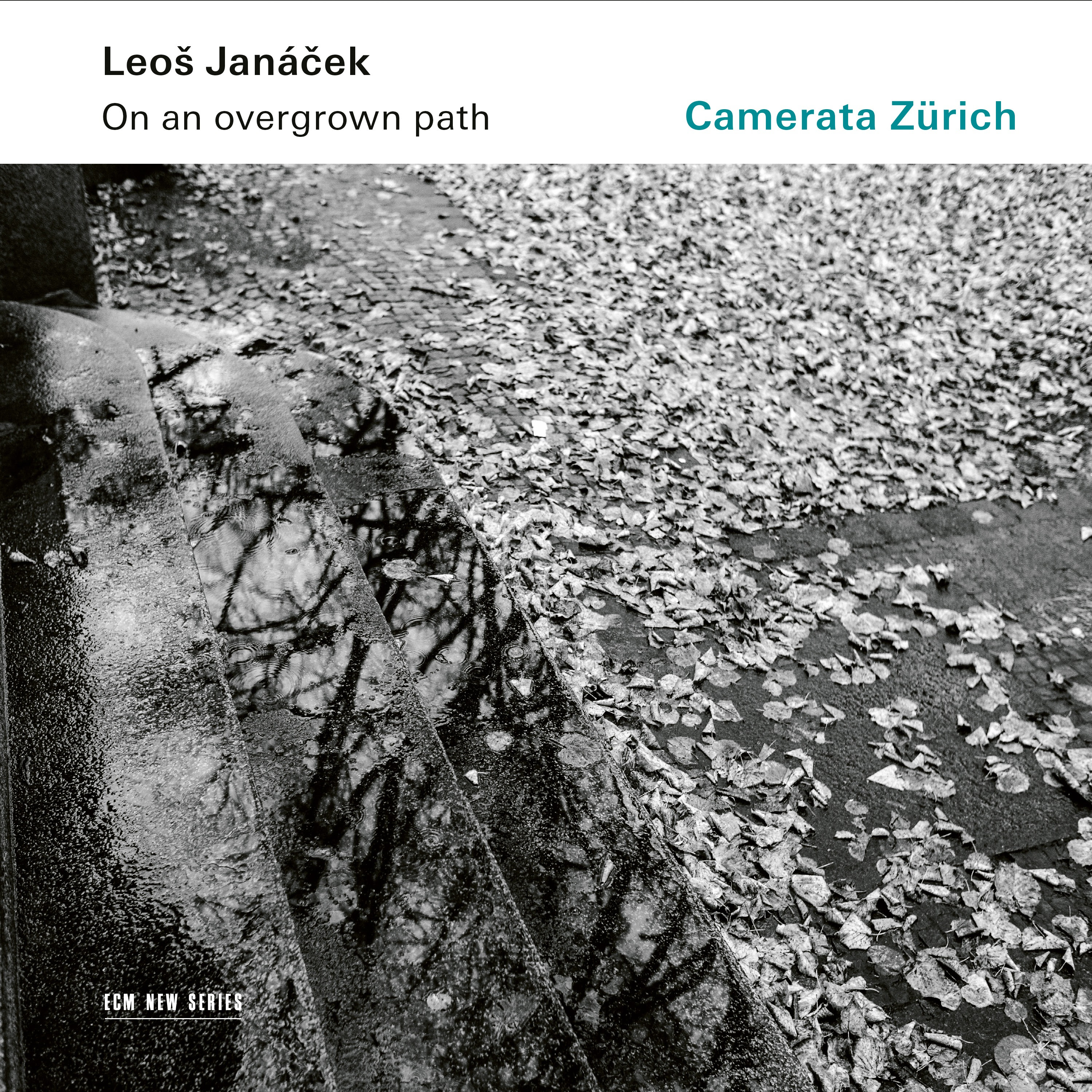All material found in the Press Releases section is provided by parties entirely independent of Musical America, which is not responsible for content.
Press Releases
Nov 26: ECM New Series releases Leoš Janácek's On An Overgrown Path performed by Camerata Zürich with poems by French writer Maïa Brami
FOR IMMEDIATE RELEASE
Press contact: Christina Jensen, Jensen Artists
646.536.7864 x1 | christina@jensenartists.com
ECM New Series Releases
Leoš Janácek – On An Overgrown Path
Camerata Zürich

Camerata Zürich
Igor Karsko: direction, lead violin
Maïa Brami: speaker
ECM New Series 2597
Release Date: November 26, 2021
On An Overgrown Path, Leoš Janácek’s 15 pieces-spanning piano cycle, is here presented in a reshaped guise, arranged for string orchestra and played by the Camerata Zürich under lead violinist Igor Karsko’s direction. This is the premiere recording of the adaption, written by Daniel Rumler in 2017. Janácek’s composition is based on autobiographical fragments – memories from his youth and of his daughter Olga that are additionally contextualised on the recording by readings of poems, written and recited explicitly for this project by the French writer Maïa Brami. Her words, combined with the elaborate string reworkings, establish an insightful setting for Janácek’s music and uncover fresh paths through the original scores. Josef Suk’s Meditation on the Old Czech Chorale St. Wenceslas and Antonín Dvorák’s Notturno, thematically bound to the cycle’s folkloric backdrop, create an appropriate frame.
Much of the cycle On An Overgrown Path – previously captured in its original design on the ECM New Series release A Recollection by András Schiff – had originally been conceived for harmonium, a popular domestic instrument in Janácek’s days, and was only later rearranged for piano, the instrument the remaining pieces were written for. Ultimately divided into two volumes – referred to as ‘books’, – the first, comprising ten pieces, was published in 1911, and the second posthumously in 1942. Moving seamlessly between subtle harmonic shifts, generous folkloric gestures and more somber scenes from Janácek’s past, the cycle’s nuances are respectfully translated to strings on the recording, and the alternatingly light and dark themes that flare up across the 15 pieces turn into a compelling chiaroscuro.
Violinist Daniel Rumler created the string arrangements at the suggestion of Igor Karsko, the Camerata’s concertmaster and current artistic director, who followed in the footsteps of Thomas Demenga, the ensemble’s director from 2011 to 2020. It was Demenga who had recruited Maïa Brami, asking the writer to draft texts to go along with the cycle. Brami has taken to the task with great care, opening little windows into Janácek’s memories, drawn from different aspects of the composer’s life. In a foreword to her texts, included in the booklet with liner notes by Thomas Meyer, Brami shares her thoughts on the cycle, as she imagines a seasoned Leoš Janácek returning to his native forest: “As I listened to the piece, I saw the old man, the halo of his white mane at dusk. I saw him go deep into the forest from which he had been torn as a child – that regained kingdom, an eternal source of inspiration – and go back in time for one last journey, to the overgrown path that symbolises life.”
In On An Overgrown Path, contrasts are omnipresent and reveal a rare wealth of colours and textures. After only a minute into “Our evenings”, the opening piece unveils everything from romantic sighs and pastoral idyll to interruptions by turbulent gloom, offering a short preview of the abundance of ideas and subjects that pervade the cycle. Outlining its essence, Thomas Meyer accurately summarizes On An Overgrown Path as: “a collection of intimate memories and inklings, for example of his (Janácek’s) own youth or of Olga, all captured in a spare, transparent and highly unusual tonal language.” As it’s divided among the strings of the Camerata Zürich, this tonal language is highlighted from a fresh perspective and endowed with new transparency.
Bookending On An Overgrown Path on both sides, Josef Suk’s Meditation on the Old Czech Chorale St. Wenceslas and Antonín Dvorák’s Notturno act as preface and epilogue to the cycle. The pieces’ connection to Janácek are exposed – besides the obvious fact that their composers are all Czech – by Janácek, Dvorák and Suk’s common concern for Bohemian folklore. Suk, Dvorák’s pupil and son-in-law, created his meditation after the outbreak of World War I “in the hope of Czech independence from the Austro-Hungarian monarchy,” basing it on the 12th century chorale as an act of rebellion. Dvorák’s single-movement composition, originally the slow movement of his early string quartet No. 4 in E minor, had been used in an abbreviated form as the first of two slow movements in his string quintet in G major, Op. 77, but was later excised and re-arranged to the version presented here. Its patient harmonic pulse receives a vivacious treatment by the Camerata Zürich, concluding the programme on a hopeful note.
# # #





 FEATURED JOBS
FEATURED JOBS

 RENT A PHOTO
RENT A PHOTO


